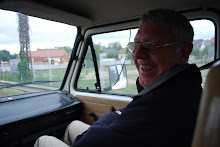And yet, even with their seemingly autonomous status in the many nations they call “home”, the Roma are open to a variety of religions. As a migrant, wandering people, the Roma have typically adopted the dominant faith tradition of their host country. While the Roma in Eastern Europe are most commonly Catholic, Orthodox Christian or Muslim, they have continued to maintain specific aspects of their own indigenous faith practices and preserve their own particular worship flavor.
In the Ukraine in particular, the Roma villages we were able to visit have welcomed and adopted the Reformed Christian tradition. These communities are full of welcoming individuals and families, smiling children and vibrant worship services. While most Hungarian Reformed church services in the area involve traditional hymns, doctrinal prayer and long messages from the pulpit, the Roma give a Reformed worship service their own twist. Typical Hungarian Reformed services emphasize reflection and quiet observance over long interludes of rambunctious worship—singing is kept to a relative minimum in terms of its place in the service. The Roma on the other hand revel in music and emotion. Their worship services are filled to the brim with energetic praise and singing. Roma women raise their voices in high-pitched song while musicians strum guitars swiftly. Worship is a joyful time. It is not only a time for reflection, prayer and Biblical teachings but a time for dancing, clapping and celebration.


Alison Winters

No comments:
Post a Comment